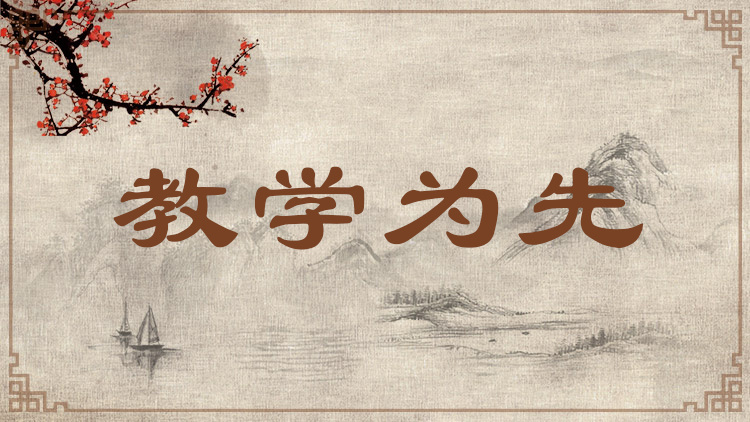中华文化专词双译 中华思想文化术语
教学为先 Education Must Be Placed First

教育要放在首位。这里的“先”,既表示其重要性,也表示其先行性。
归纳古人相关论说,其蕴含的意思主要是:个人的成长成才,良好社会风尚的形成,国家的建设及有效治理,发现事物固有原理、发挥其固有属性以成就事功等,均离不开教育。因此,兴办教育是国家重要职能之一。这是中华民族自古及今的共识。
Here "first" expresses both the importance and priority of education. A summary of ancient works on this subject argued that education's meanings include: nurturing individuals and their talents; forming good social mores; developing the country and its effective governance; discovering the inherent principles of things and making full use of their attributes in order to fulfill tasks – these are all inseparable from education. Therefore, the promotion of education is one of the important functions of the state. This has been a consensus of the Chinese people, both past and present.
引例 Citations:
◎古者建国,教学为先,所以道世治性,为时养器也。(《三国志·吴书·孙休传》)
古代圣王建立国家,将教育放在首位,用它来引导世人修养品性,为当世培养所需的人才。
When the ancient sage-kings established their states, they gave education the highest priority in order to guide the people to cultivate character, and nurture the talent needed by the times. (The History of the Three Kingdoms)
◎自古开物成务,必以教学为先。(《南齐书·崔祖思传》)
自古以来,揭示万物真相,确定做事原则,就必须首先兴办教育。
Since ancient times, education had been given the foremost priority in order to reveal the true nature of all things and to determine the principles of action. (The History of Qi of the Southern Dynasties)
推荐:教育部 国家语委
供稿:北京外国语大学 外语教学与研究出版社
责任编辑:刘怿莎





